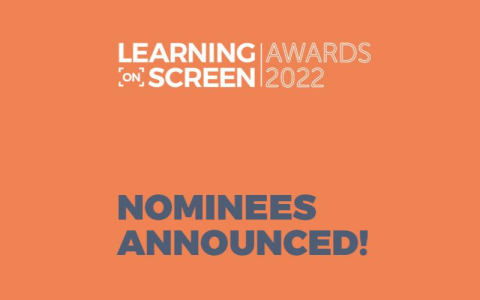WELS tops Learning on Screen nominations

The Learning on Screen Awards showcase the best in educational film and television, and this year the Faculty of WELS has six nominations from the seven OU films represented. Established in 2005, the main judging criterion of the Learning on Screen Awards is the improvement of the quality of learning through the appropriate use of moving images and sound.
Broadcast Award
The category is open to productions transmitted via any broadcast channel.
The OU’s partnership with the BBC has operated for over 50 years, originating from the ground-breaking late night lectures. The partnership continues today, with three OU/BBC co-productions featuring in this category:
Don't Exclude Me
Professor Eric Addae-Kyeremeh and Professor Liz Chamberlain, from the School of Education, Childhood, Youth and Sport (ECYS) were academic consultants to the series. The series follows behavioural expert Marie Gentles as she helps a school manage their most challenging pupils. With school exclusions at their highest in a decade, Marie works with teachers and parents to help keep pupils in the classroom.
Nowhere to Run: Abused by Our Coach
Professor Ben Oakley (ECYS) was academic consultant to this challenging documentary, featuring broadcaster and journalist Charlie Webster. Charlie was abused by her running coach as a teenager, but never spoke to any of her friends about what was happening to her. Only after her abuser’s conviction did she realise she was not alone. She returns to her hometown to talk to her teammates about her experiences.
Surrogates
This series follows the experiences of five women as they embark on the complex journey of trying to have babies for other people. Professor Lesley Hoggart and Professor Sarah Earle from the School of Health, Wellbeing and Social Care (HWSC) were academic consultants to the programme, as they uncover the taboos around the controversial subject of surrogacy.
Educational Film Award
This category is open to any film intended to educate either a general audience or those with a specific interest, that has not been broadcast, but been distributed via any other delivery platform.
Dr Philip Seargeant (School of Languages and Applied Linguistics) was the academic behind the two WELS nominations in this category:
The Language of Protest
Filmed just prior to the pandemic, this film examines how protest movements go about communicating their message, focusing on the work of Extinction Rebellion. With contributions from journalists, activists and academics, the film is an insightful look at political communication in the era of the protest.
The Fake News Phenomenon
This film explores the growth of misinformation and disinformation, and their damaging impact on democracy. Set in Wales, against the backdrop of a growing awareness of devolution as well as the Coronavirus pandemic, the film discusses the role of politicians and the difference between the way Wales-based and UK-wide media outlets report Welsh news.
Online Education Resource Award
Open to any educational resource that is hosted online and contains a moving image element, the OpenLearn interactive, How to be a better LGBTQI+ ally is recognised in this category.
Dr Mathijs Lucassen (HWSC) authored the interactive, which looks at ways you can show your support to LGBTQI+ youth, as an ally. Based on real-life stories from LGBTQI+ young people, the interactive aims to help you to help someone to thrive, rather than just survive.
The winners will be announced in an online ceremony on 28 April. See the full list of nominees on the Learning on Screen website.
Update: We are delighted to announce that two of the WELS nominations were successful: The Broadcast Award went to the BBC/ OU co-production Surrogates, and the Educational Film Award went to The Language of Protest. Read more about the winning films on OU News.
Are you already an OU student?
Request your prospectus
Explore our qualifications and courses by requesting one of our prospectuses today.
Request prospectus